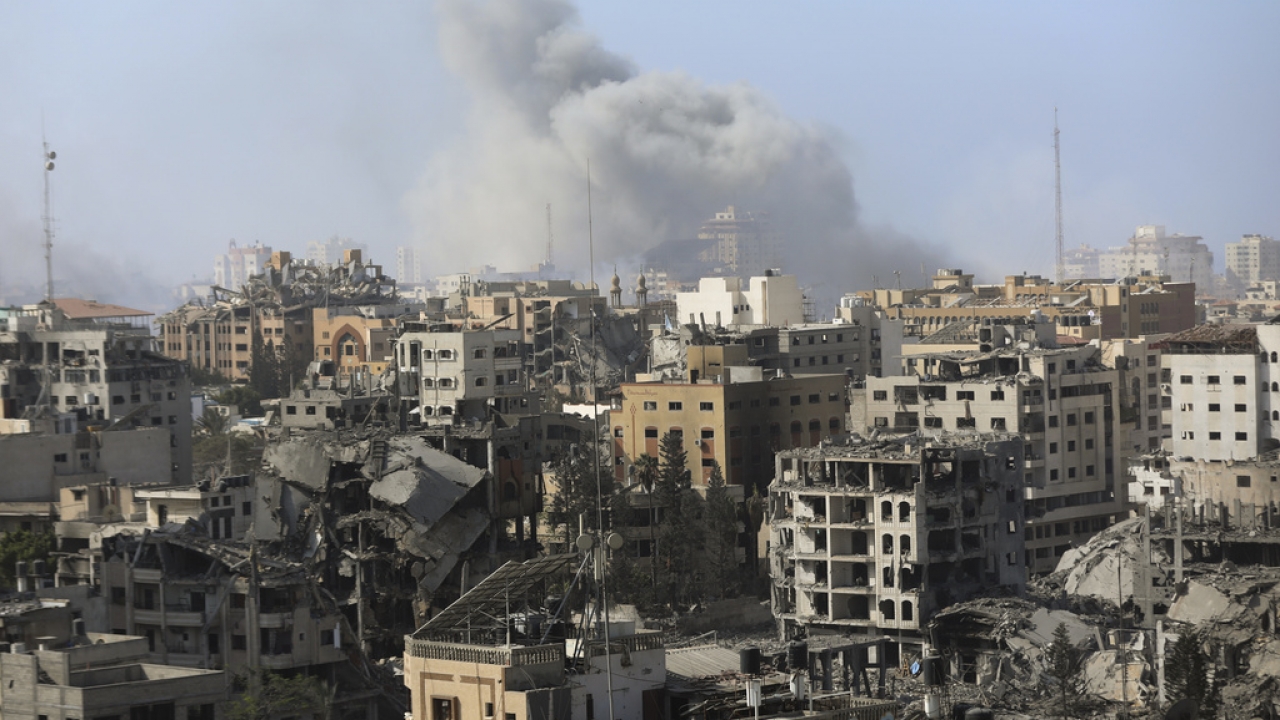The World Health Organization warned that the risk of disease is growing in Gaza as health facilities, water and sanitation systems have become disrupted.
The warning comes as international groups have urged the Israel Defense Forces and Hamas to engage in a cease-fire, which the United States has opposed.
The WHO says 1.5 million people have been displaced in Gaza, many of whom are living in "severely overcrowded" shelters.
"Lack of fuel has led to the shutting down of desalination plants, significantly increasing the risk of bacterial infections like diarrhea spreading as people consume contaminated water," the WHO said. "Lack of fuel has also disrupted all solid waste collection, creating an environment conducive to the rapid and widespread proliferation of insects, rodents that can carry and transmit diseases."
The WHO says there has been a significant increase in cases of diarrhea, especially among children. Reports of lice, scabies, chicken pox and upper respiratory infections have also spiked in recent weeks, the organization said.
"WHO calls for urgent, accelerated access for humanitarian aid – including fuel, water, food, and medical supplies – into and throughout the Gaza Strip," the WHO said. "All parties to the conflict must abide by their obligations under international humanitarian law to protect civilians and civilian infrastructure, including health care. WHO calls for the unconditional release of all hostages and a humanitarian ceasefire to prevent further death and suffering."
Although U.S. officials say they won't back a cease-fire, they said they are open to a "humanitarian pause."
"When we talk about a cease-fire, when you use that term — when that term is implied, a general cease-fire — it connotes a cessation of hostilities for an indefinite period with the purpose of finding an end to the conflict," said National Security Council spokesperson John Kirby. "Usually, when you get into a cease-fire, it's when you think you're at the endgame and it's time to negotiate: Go to the table and brass tacks here, how are we going to end this war? And we don't support that at this time."
On Tuesday, Dr. Hussam Abu Safiya, the head of pediatrics at the Kamal Adwan Hospital in Gaza, told Scripps News his hospital is on the verge of running out of fuel — meaning many children currently hooked up to ventilators might instantly die.
"He's asking that the U.N. come and make sure that his hospital is not used for any other means, but they need fuel," said Dr. Zaher Sahloul, the president of international nonprofit MedGlobal, who helped with translation.
The humanitarian crisis has been exacerbated by hostilities in the region after Hamas terrorists launched an attack in Israel that targeted civilians on Oct. 7. Israel responded by bombing targets in Gaza as Israel told Gaza residents to flee.







